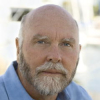Craig Venter

Craig Venter
John Craig Venteris an American biotechnologist, biochemist, geneticist, and entrepreneur. He is known for being one of the first to sequence the human genome and the first to transfect a cell with a synthetic genome. Venter founded Celera Genomics, The Institute for Genomic Researchand the J. Craig Venter Institute, and is now CEO of Human Longevity Inc. He was listed on Time magazine's 2007 and 2008 Time 100 list of the most influential people in the world. In 2010, the...
NationalityAmerican
ProfessionScientist
Date of Birth14 October 1946
CountryUnited States of America
I've had a very unusual background in science - not the usual route of planning on being a scientist from age 3. I think my story shows that success is more about personal motivation and determination than it is about where you were born or what your economic status was.
I turned 65 last year, and each year I get more and more interested in human health. For most people it happens around age 50, but I've always been a slow learner. It's critical in terms of the cost of health care.
As the Industrial Age is drawing to a close, I think that we're witnessing the dawn of the era of biological design.
Your age is your No. 1 risk factor for almost every disease, but it's not a disease itself.
If there is a race, it is one to bring the benefits of genomes to human therapeutics. We all want to get there. We all want people to have much more meaningful and productive lives as they age.
I was a surf bum wannabe. I left home at age 17 and moved to Southern California to try to take up surfing as a vocation, but this was in 1964, and there was this nasty little thing called the Vietnam War. As a result, I got drafted.
The Anthropocentic Age - the first age in which humankind is the dominant species on the planet - cuts both ways: it is up to us to destroy or save the planet. We certainly have the ability.
I don't see any absolute biological limit on human age.
Everybody is looking for a naturally occurring algae that is going to be a miracle cell to save the world, and after a century of looking, people still haven't found it.
Nobel prizes are very special prizes, and it would be great to get one.
Synthetic biology can help address key challenges facing the planet and its population. Research in synthetic biology may lead to new things such as programmed cells that self-assemble at the sites of disease to repair damage.
I've gotten some pretty nice awards. I'm having trouble finding places to put them all.
It takes 10 kilograms of grain to produce one kilogram of beef, 15 liters of water to get one kilogram of beef, and those cows produce a lot of methane. Why not get rid of the cows?
Society and medicine treat us all as members of populations, whereas as individuals we are all unique, and population statistics do not apply.